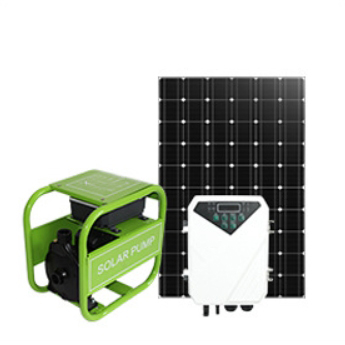In scenarios where electricity is unavailable, solar water pumps present a practical solution to meet your water requirements efficiently. These autonomous systems harness solar energy to power water pumps, allowing you to extract water from wells, rivers, lakes, or other water sources. This article will delve into the workings of solar water pumps and provide guidance on selecting, installing, and maintaining these systems.
Working Principles of Solar Water Pumps
At the core of a solar water pump system are the solar panels. These panels convert sunlight into electricity, which is then directed to a controller and subsequently to the water pump. The choice of pump varies, ranging from screw pumps to centrifugal pumps or impeller pumps, depending on your needs and the depth of your water source. Once installed, the system operates during daylight hours, utilizing solar power to pump water and storing excess water for nighttime use.
Choosing a Solar Water Pump
Selecting the right solar water pump is pivotal. Consider the following factors:
- Depth of the Water Source: The depth of your water source dictates the type of pump required. Shallow well pumps are ideal for less profound water sources, while deep well pumps are tailored for deeper wells or water bodies.
- Daily Water Usage: Estimate your daily water consumption to determine the appropriate size of solar panels and water storage capacity needed.
- Water Quality and Purification Needs: If your water source necessitates purification or filtration, ensure compatibility with the solar water pump system.
- Budget: Solar water pump systems come in various models and sizes, each with its corresponding price range. Define your budget and opt for a system within your financial means.
Installation and Maintenance
After selecting the suitable solar water pump system, attention shifts to installation and maintenance:
- Installation: Position the solar panels to receive maximum sunlight daily. Professional installation of the water pump and controller is essential.
- Maintenance: Regularly inspect the system to ensure the solar panels remain clean and unobstructed, optimizing solar energy utilization. Routine maintenance of the water pump, including lubrication and cleaning, is imperative.
- Water Storage: Incorporate adequate water storage capacity in your system to guarantee a continuous water supply during nighttime or inclement weather.
Conclusion
Solar water pumps offer an eco-friendly, sustainable solution for accessing water in areas lacking electricity. By comprehending their operation, selecting the appropriate system, and diligently installing and maintaining it, you can effortlessly procure the water you need while minimizing reliance on conventional electrical power. Whether you find yourself in a remote locale, immersed in wilderness survival, or simply seeking to implement a sustainable water supply system at home, solar water pumps stand as a viable choice.
E-mail:sales01@hodepump.com
Tel/WhatsApp:+86 17695541418









